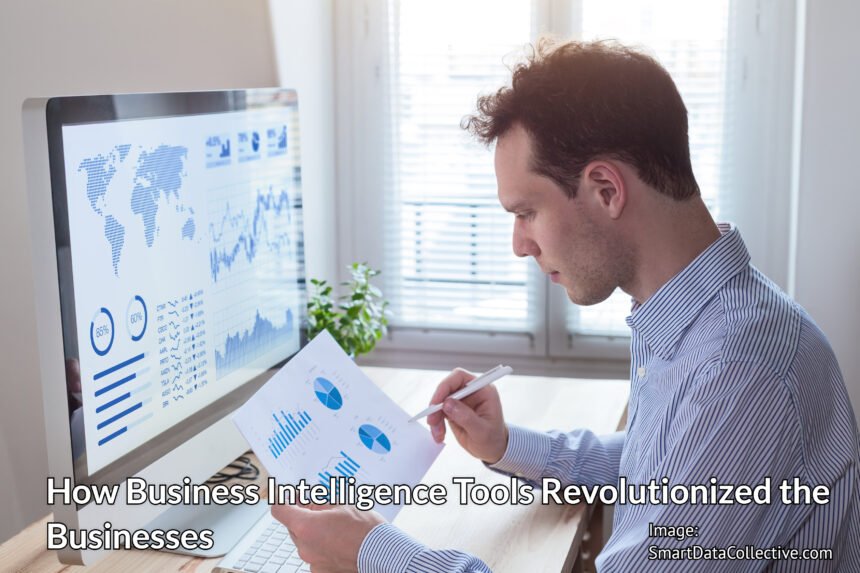‘A bird in the hand is worth two in the bush’, but cooked meal is better any day. Business Intelligence tools are like cooks, they collect required fresh vegetables (in this case, data) and process them to provide you with delicious food with direct intake. Business Intelligence tools select the data required from the pool of data i.e. market. Market is exploding with data available at every sources. There are various platforms to procure external data. According to this Forbes story, external data which is available in abundance, is the biggest untapped source for information collection. Collecting this external data is easy in this world of technology with help of digital meters, sensors and other technical advancements.
- 1. Predict your ROI
- 2. Understand your customers
- 3. Personalize Sales strategy for each Lead
- 4. Understand the Benefits of Cloud Interfaces
- 5. Keep tabs on inventory and avoid wastage.
- 6. Present the bigger picture
- Here are some examples of businesses where Businesses Intelligence was adopted and the changes it has brought:
Once this priceless data is collected, Business Intelligence tools (or Business Analytics software) like Microsoft BI, Oracle BI (OBIEE), Oracle Hyperion, SAP HANA and millions available in the market;
analyse and process the data to create useful insights for the businesses. With implementation of BI softwares, businesses are able to achieve detailed reporting, visual representation of Data, performance index monitoring and many more advanced facilities. Business Intelligence can be implemented in following ways:
1. Predict your ROI
Business Intelligence helps businesses figure out the producing ROI (return on investment) of different marketing strategies. Business intelligence tools translate information into analytics reports. These help businesses make decisions on solid research, data, and facts, which earlier was done with intuition, assumption, or gut instinct.
2. Understand your customers
It helps businesses know what drives revenue for their businesses; who your end user is, what influences their decisions, and how they consume their information. Using media outlets and articles, videos, ads, podcast, etc. one can know how their customers adapt to different advertisements and invest wisely.
3. Personalize Sales strategy for each Lead
For every lead you are pursuing, it is a good idea to do business research to personalize a sales strategy. This helps keep subjectivity in sales.
4. Understand the Benefits of Cloud Interfaces
If you are storing data on the cloud, you can use many great features that aren’t available in other platforms. You need to be aware of the best cloud database software available. It opens up many doors that you wouldn’t have otherwise considered.
5. Keep tabs on inventory and avoid wastage.
Business intelligence or analytics has becomes a necessity for retail outlets and restaurants where maintaining an inventory is the foundation of business. Retailers and restaurants need to know how stocked their inventory is and how soon will it be scarce. Analytics provides this insight to capitalize on recent trends.
6. Present the bigger picture
Quantitative data, along with qualitative analysis helps present a bigger picture to the professionals. Understanding and satisfying customers’ needs and correct problems helps because it provides information about why a phenomenon is happening. These quantitative figures help understand the qualitative values of customer actions and responses.
The emergence of the Business Intelligence concept can be dated back to 1865. Since then, the field of business intelligence has kept on evolving. The term was coined to highlight the decision making process of bankers, now the same term is used for Data analysis and processes. The concept started with the effort to make business statistics more comprehensible for business holders with little data analysis knowledge. BI tools have come a long way from an idea to innumerable tools like Spreadsheets, Reporting ,Online analytical processing (OLAP), Digital dashboards and various other developed by leading and small software firms.
Business Intelligence Tools have affected businesses of all categories and sizes. World’s leading Business Intelligence Softwares have worked with innumerable fields. The expanse of Business Intelligence tools vary from Aerospace and Defense to Banking and Insurance; Automotives to Life Sciences; Chemicals and Consumer Products to Sports and Entertainment; name the industry and business intelligence tools can help them.
Here are some examples of businesses where Businesses Intelligence was adopted and the changes it has brought:
- Songdo, a futuristic “smart city” in South Korea, implemented chip cards for garbage disposal. Citizen are required to use their chip cards every time for garbage disposal which helps Songdo’s government to measure waste disposal, time and location of the disposal, etc. This provides helpful data for predicting the ideal moment for emptying containers and optimizing garbage collection routes. This is all possible due to availability of data and tools to analyse it.
- In Formula One Racing, data is available at every outlet; speed, inclination, tire pressure, fuel burn efficiency and the data is more that one can imagine. This was not possible earlier, due to lack of availability of data due to advanced sensors. Now one can know all about the outcome of racing by carefully observing data of individual and competitor’s cars. This all is an outcome of Business intelligence softwares.
Effects of business intelligence are widespread and unbelievable. Business Intelligence tools are omnipresent. Thus, it is not a hyperbole to say that Business Intelligence has revolutionized each and every existing business. Revolutionize your businesses with business intelligence tools. Find them on various software recommendation sites like SoftwareSuggest and many more.










